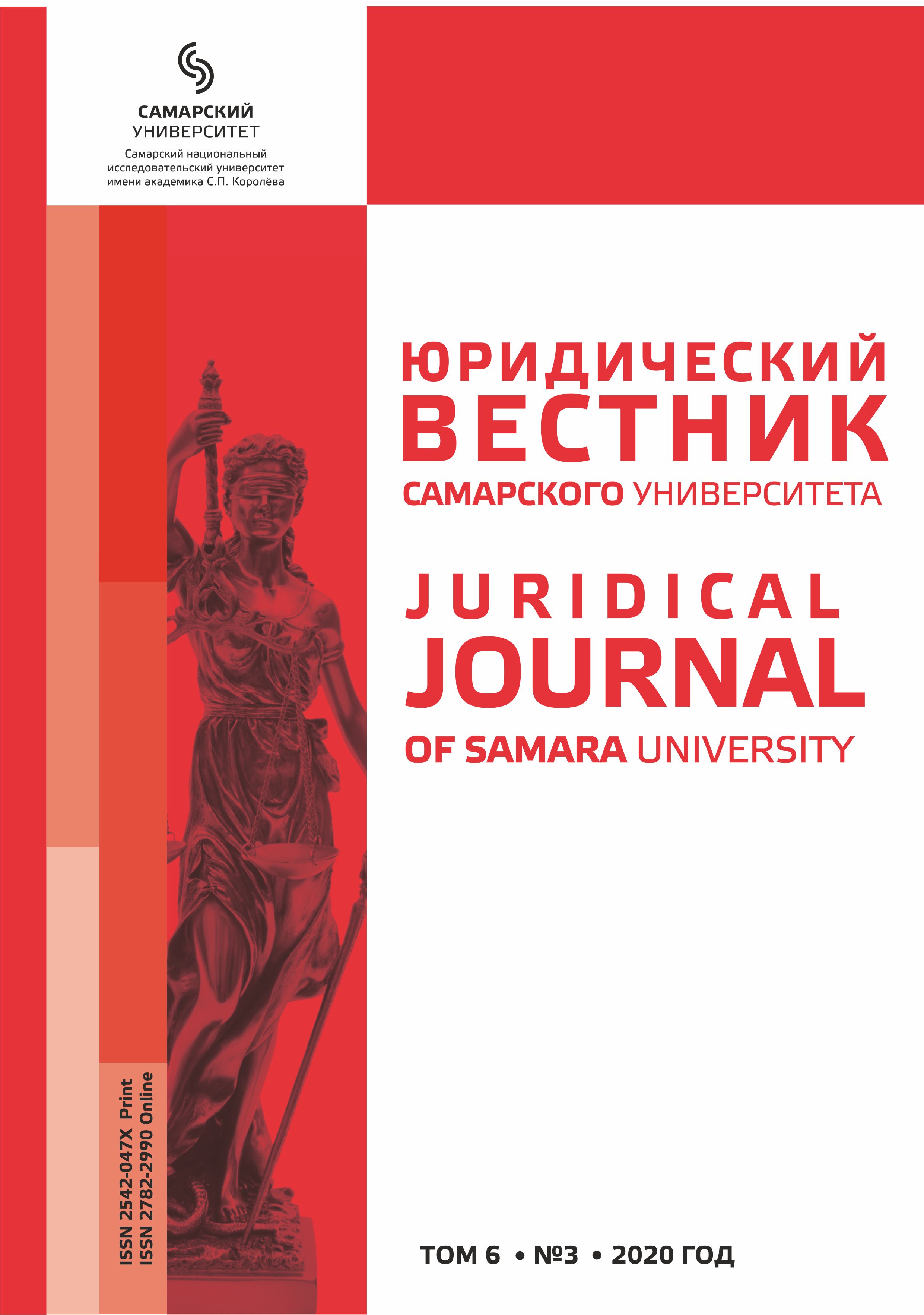DEMOCRATIC ORGANIZATION OF THE INFORMATION SOCIETY: PUBLIC FUNCTIONALITY OF INFORMATION ACTIVITIES
- Authors: Volkov V.E.1
-
Affiliations:
- Department of State and Administrative Law, Samara National Research University
- Issue: Vol 6, No 3 (2020)
- Pages: 28-31
- Section: Constitutional law
- URL: https://journals.ssau.ru/jjsu/article/view/8087
- DOI: https://doi.org/10.18287/2542-047X-2020-6-3-28-31
- ID: 8087
Cite item
Full Text
Abstract
The article deals with the implementation of principles of democratic organization of society and state in the context of development of information relations. The author draws attention to the need to improve the level of protection of fundamental human and civil rights and freedoms in the face of the growing imbalance in the legal possibilities of major technological companies and citizens. The digitization of economy makes it necessary to create additional legal guarantees for the realization of constitutional human rights and to place on the strong side of contractual relations the obligations arising from its public function.
About the authors
V. E. Volkov
Department of State and Administrative Law, Samara National Research University
Author for correspondence.
Email: grigorjewa.katerina@yandex.ru
Russian Federation
References
- Jack Dorsey’s stand against Trump marks a long-debated red line. The Twitter CEO’s addition of mild disclaimers on certain presidential tweets stands in stark contrast to Facebook’s persistent laissez-faire approach.
- Available at: http://bloom.bg/2DDH0VX.
- Microsoft won’t sell police its facial-recognition technology, following similar moves by Amazon and IBM. Available at: http://wapo.st/3fHnwwx.
- Sobranie zakonodatel'stva Rossiiskoi Federatsii [Collected Legislation of the Russian Federation], 2012, no. 31, Article 4470. Available at: http://www.szrf.ru/szrf/doc.phtml?nb=100&issid=1002012031000&docid=155 [in Russian].
- Sinyugin V. Yu. Administrativno-pravovoi status sub"ektov, osushchestvliaiushchikh publichno znachimye funktsii [Administrative and legal status of entities, carrying out publicly signifi cant functions]. Vestnik Omskogo universiteta. Seriia «Pravo» [Herald of Omsk University.
- Series «Law»], 2014, no. (39), pp. 81–85, p. 83. Available at: http://cyberleninka.ru/article/n/administrativno-pravovoy-status-subektov-osuschestvlyayuschih-publichno-znachimye-funktsii [in Russian].
- Bugaevskaja N. V. Vypolnenie publichnykh funktsii kak priznak sub"ekta korruptsionnykh prestuplenii [The execution of public functions as a sign the subject of corruption crimes]. Chelovek: prestuplenie i nakazanie [Man: Crime and Punishment], 2015, vol. 3 (90), pp. 90–94. Available at: http://elibrary.ru/item.asp?id=25324537 [in Russian].
- Mazaev V. D. Publichnaia sobstvennost' v Rossii: konstitutsionnye osnovy [Public property in Russia: constitutional framework]. Moscow, 2004, 380 p. Available at: http://elibrary.ru/item.asp?id=20002152 [in Russian].
- Bachilo I. L. Informatsionnoe pravo: uchebnik dlia vuzov [Information law: textbook for universities]. Moscow: Vysshee obrazovanie; Iurait-izdat, 2009, pp. 72–73 [in Russian].
- Informatsionnye pravootnosheniia: teoreticheskie aspekty: kollektivnaia monografiia. Pod red. I. M. Rassolova [Rassolov I. M. (Ed.) Information legal relations: theoretical aspect: multi-authored monograph]. Moscow: Prospekt, 2017, 208 p. Available at: http://elibrary.ru/item.asp?id=27492535 [in Russian].
- Sobranie zakonodatel'stva Rossiiskoi Federatsii [Collected Legislation of the Russian Federation], 2006, May 8, no. 19, Article 2060. Available at: http://www.szrf.ru/szrf/doc.phtml?nb=100&issid=1002006019000&docid=12 [in Russian].
Supplementary files










